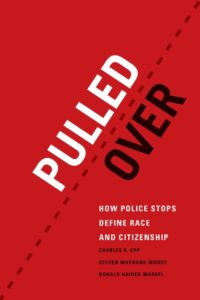This morning, the Supreme Court ruled in Riley v. CA and U.S. v. Wurie, 9:0, that searching a cellular phone requires a warrant.
Chief Justice Robert’s Op. Ct. analyzed phone searches in the context of the Search Incident to Arrest exception to the warrant requirement, comparing a phone search to a search inside a pack of cigarettes in Robinson. Robinson, you’ll recall, extended the Chimel doctrine to all containers within the “grabbing area” of the suspect. But given the newness of the technology, which the framers (duh) could not anticipate, the court thankfully is unable to find “guidance from the founding era” and turns to reason and pragmatics.
The state presented essentially two rationales for warrantless searches of cellphones: harm to the officer and destruction of evidence. The opinion summarily dismisses the former: contrary to the cigarette pack in Robinson, there could be no argument of a physical weapon hidden in the phone (the police knew what they were looking for: data), and if there were any concerns of alerting someone to the presence of officers using the phone, those could be addressed via other exceptions to the warrant requirement, such as exigent circumstances, in specific cases. As to the second rationale, with the phone itself physically in the hands of the police, the main concerns regarding destruction would involve encrypting and remote wiping, none of which seems to the Court to be an empirically-supported practical concern (maybe it will be, from now on?). Also, the practicalities of securing the scene, bringing the suspect into custody, etc., mean that the police won’t turn its attention to the phone right away anyway, and therefore the warrant requirement is not onerous or time-consuming for the investigation as a whole.
The decision then explains its particular sensitivity to the issue of phones because of the heightened privacy interests involved. Cellphones differ from physical objects in their immense storage capacity, which means that one carries on one’s person intimate, sensitive data from various sources: locations, conversations, history of internet searches, purchases, dating and romantic life. These merit particular scrutiny on the part of the Court and limitations on police power.
The court also rejects other analogies made by the state: to cars, to pen registers, to pre-digital phones. The rationales for the rejection are all about preferring a bright-line rule and concerns abou spillover of information that was not available before the era of smartphones.
(Justice Alito, concurring in judgment, disagrees that danger to the officer and risk of evidence destructions were the rationales behind Chimel, points to some anomalies created by the decision, but does not see a workable alternative.)
Three notable things:
(1) The decision is refreshing in its willingness to engage with technology and fully comprehend its implications. It is not driven by technophobia (like, say, Kyllo), but by the experience of people who use phones daily.
(2) Not unrelated: Like Jones, this is one more decision that protects the lifestyles and technologies of the middle class. As opposed to, say, searches of homes with no curtilage, or stops and frisks in the street, both of which fall under the “poverty exception”, the privacy intrusions in Jones and Riley are both such that the Justices might be able to imagine themselves subjected to them.
(3) Note that in the era of smartphones, police officers have phones, too. And they can use them to call a courthouse and get a warrant. So, this decision might not stave off privacy intrusions for very long. The extent to which the cellphone warrant requirement is not merely a formality depends on the extent to which judges will exercise discretion in issuing warrants, which we know, empirically, to be fairly limited.
What do you think about the decision?




No comment yet, add your voice below!